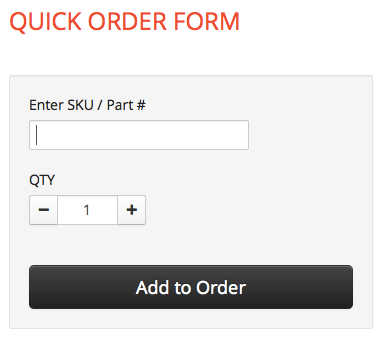The Importance of Integrating Your ERP with Your Ecommerce System
In today's digital age, businesses of all sizes are embracing ecommerce as a way to reach new customers and grow their sales. However, for many businesses, managing their ecommerce operations alongside their traditional brick-and-mortar operations can be a challenge. This is where ERP integration comes in.
ERP (enterprise resource planning) software is a suite of integrated applications that helps businesses manage their core processes, such as accounting, inventory, manufacturing, and customer relationship management. By integrating your ERP with your ecommerce system, you can create a single, unified view of your business data, which can help you to:
- Improve customer service: With a single view of customer data, you can provide customers with more personalized and efficient service. For example, you can easily look up a customer's order history or shipping information, or you can proactively contact customers with important updates.
- Increase sales: By automating tasks such as order processing and inventory management, you can free up your time to focus on other aspects of your business, such as marketing and sales. This can lead to increased sales and revenue.
- Reduce costs: By eliminating the need to manually enter data into multiple systems, you can reduce your operational costs. Additionally, by improving your efficiency, you can save time and money on things like shipping and fulfillment.
- Improve decision-making: With access to real-time data from your ERP and ecommerce system, you can make better decisions about your business, such as what products to stock, how much inventory to carry, and how to price your products.
If you're looking to improve your ecommerce operations and grow your business, integrating your ERP with your ecommerce system is a great place to start. By doing so, you can streamline your processes, improve your customer service, and increase your sales.
Here are some of the benefits of integrating your ERP with your ecommerce system:
- Improved accuracy: When data is entered into multiple systems manually, there is always the potential for errors. By integrating your ERP with your ecommerce system, you can eliminate this risk and ensure that all of your data is accurate.
- Increased efficiency: Integration can help to automate many of the tasks involved in running an ecommerce business, such as order processing, inventory management, and shipping. This can free up your time and resources so that you can focus on other aspects of your business.
- Enhanced customer experience: Integration can help to provide your customers with a more seamless shopping experience. For example, customers can view their order history and track the status of their orders from within your ecommerce site.
- Improved decision-making: Integration can provide you with a more complete view of your business, which can help you to make better decisions about things like inventory levels, pricing, and marketing campaigns.
If you are considering integrating your ERP with your ecommerce system, there are a few things you should keep in mind:
- Choose the right integration partner: There are a number of different integration partners available, so it is important to choose one that has experience with the specific ERP and ecommerce systems that you are using.
- Define your requirements: Before you start the integration process, it is important to define your requirements in detail. This will help to ensure that the integration is successful and meets your needs.
- Test the integration: Once the integration is complete, it is important to test it thoroughly to ensure that it is working properly.
Whether you are looking for standard or third party ERP connectors to harness the data inside your ERP to power your ecommerce initiatives, CIMcloud has the proven experience to deliver.





